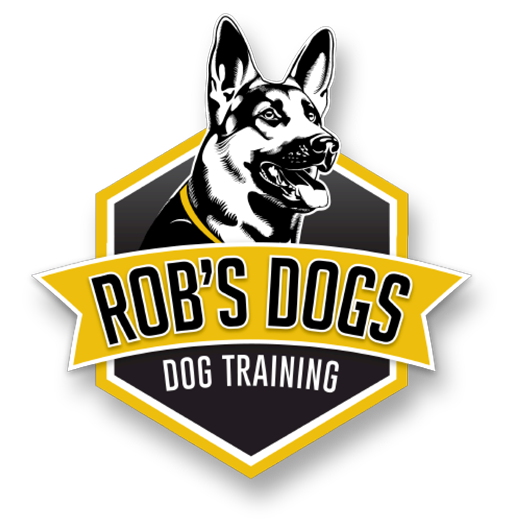Five Problem Behaviors That Dog Training Can Address
Like people, every dog has a unique personality. What that also means is that they likely also have a unique set of hang-ups. Just because dog personalities are unique does not mean that their behaviors cannot be corrected. In fact, dogs have a limited number of ways to express themselves, so their bad behaviors can be broadly categorized. Here are five problem behaviors that a dog obedience trainer can help you address:
House Training
Sometimes when dogs urinate or defecate inside the house it can be for a physical issue rather than a behavioral one. For example, dogs with diabetes, kidney disease, a urinary tract infection, or liver disease may be unable to control their urination habits. These problems would likely require a trip to the veterinarian instead of or in addition to a dog obedience trainer.
On the other hand, puppies over a year old who have not been completely housebroken would absolutely benefit from dog training classes. By the time they reach one year of age, puppies are considered adult dogs and should be housebroken. If trained correctly, this is a very doable feat.
Anxiety
Anxious dogs tend to be jumpy and nervous. In some dogs, anxiety is triggered by new people or unknown surroundings. Anxiety can also be triggered by being left alone, loud noises, water, going to the veterinarian or groomer, or even car rides. Sometimes these “triggers” may cause anxiety that borders on phobia.
Anxiety is the product of the instinct that all animals possess; that is to fight or flee when faced with danger. Fear triggers a release of adrenaline, a hormone that can cause shaking and increased heart rate. Essentially, the hormone prepares the body to attack or run away.
While anxiety has a biochemical outcome, many triggers for anxiety can be controlled with the help of a dog obedience trainer. Just as anxiety can be controlled or lessened in people, dog trainers can ease anxiety through exposure to certain triggers and positive reinforcement.
Aggression
Aggression can stem from a variety of causes, including fear and anxiety. Other causes of aggression can arise from understandable, although not acceptable, causes. For example, some dogs may express territorial issues by barking, snapping, and/or growling at strangers or other dogs. Without the intervention of a dog obedience trainer, this behavior can sometimes lead to injury.
Similarly, all animals have needs and will have some reluctance. However, aggressive resource guarding, such as growling and snapping over food, toys, or bedding, can lead to attacks unless addressed with a dog obedience trainer.
Finally, since dogs are descended from pack animals, dogs have some instinct toward establishing a social hierarchy. Naturally, dogs want to establish their dominance over other dogs that they encounter. However, a dog obedience trainer should be consulted if this instinct manifest itself as aggressive barking, lunging, and biting at other dogs.
Begging
Begging is another behavior that is understandable (sometimes cute), yet undesirable. This is an easy habit to create but frustrating to get rid of. Keep in mind that the dog only understands that begging earns the treat or food. In this case, both the owner and the dog may benefit from training by a dog obedience trainer.
Compulsive Behaviors
Compulsive dog behaviors such as licking its paws, chewing furniture, and barking, may simply be an attempt to gain attention. If the behavior attracts the owner’s attention, even if to tell the dog to ‘stop it,’ the dog will repeat the behavior when it wants attention.
Compulsive behaviors may also be a reaction to anxiety and fear. If licking its paws calms an anxious dog, dopamine in the dog’s brain associates the behavior of licking its paws with the reward of feeling calm. The dog will then compulsively lick its paws to feel better. For this reason, a dog obedience trainer may be needed to help relieve the symptoms.
Dog obedience trainers can help with anxiety, begging, compulsions, aggression, house training, and hitting important milestones with your puppy. Rob’s Dogs offers expert obedience and puppy training in the Arizona area.
Dogs are social animals that look up to humans for guidance and behavior expectations. As the owner, you have a role to play in determining how your dog behaves. Training your dog is the only way you can instill wanted behavior in your pet and ensure that your relationship is not compromised by bad behavior.
Some dog behaviors are annoying: begging for food, urinating on the carpet, and sitting on the furniture. While they may be bothersome and justify dog training, they do not necessarily pose a danger to the dog or to the owner.
Dog obedience training can be conducted in a group setting or one-on-one. Group classes usually include one trainer for up to ten dogs, including your dog. Private dog obedience training classes, on the other hand, are conducted with just one dog.
Are you aware that the earliest remains of humans and dogs buried together are 14,000 years old? The close bond between man and canine has been around for centuries and it is only growing stronger.
